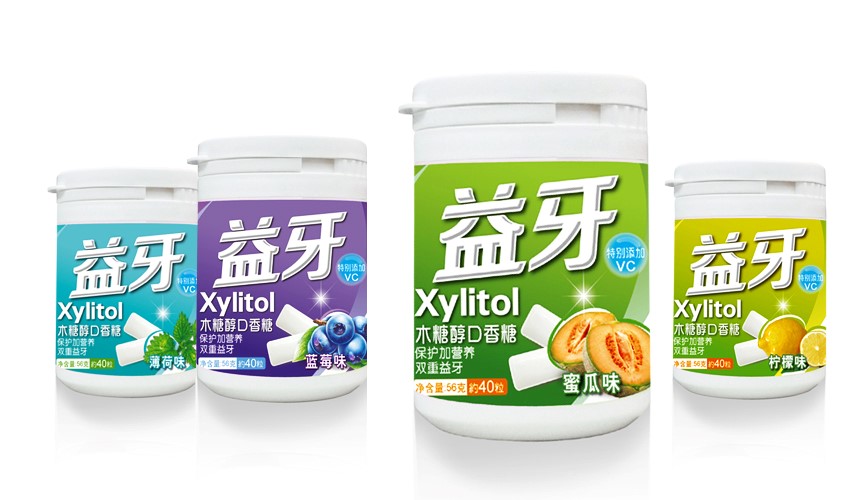-
Make a Call : +86 551 63500087
-
Get A Estimate : sales@gnfchem.com
What Are You Looking For?
What Are You Looking For?
Make a Call : +86 551 63500087
Get A Estimate : sales@gnfchem.com

Xylitol, a sweet substance that prevents dental caries
Jul 17, 2024Teeth are closely related to our health and image. Dental caries, commonly known as tooth decay, is a common dental problem in life, which refers to the decomposition of teeth caused by bacterial activity. Common caries strains are gram-positive aerobic bacteria such as Streptococcus lactis and Streptococcus transglucosus, whose metabolism produces acids that lead to tooth decay. Interestingly, anthropological studies have found that caries was rare in primitive man, however, as mankind grew to consume a diet rich in starchy (polysaccharide) grains, the incidence of caries increased dramatically due to the fact that sugars are the main source of energy for oral bacteria. Fortunately, xylitol, a sweet, low-calorie, caries-preventing substance, is found in nature.
Sweeteners are food additives that give food a sweet taste, and xylitol is one of the most widely used sweeteners instead of sucrose because its sweetness is comparable to that of sucrose, but its caloric content is only 60% of that of sucrose. Xylitol, scientific name for (2R, 3R, 4S)-pentaerythritol, belongs to the sugar alcohol (sugar alcohol) of a kind, the so-called sugar alcohol refers to sugar molecules aldehydes, ketones in the carbonyl group is reduced to hydroxyl after the generation of polyalcoholic compounds. Xylitol is a product of xylose metabolism, although xylitol can be extracted from a variety of plants, but the current demand is huge, mainly through the xylose hydrogenation reduction. Interestingly, xylitol is actually not plant-specific, the process of human sugar metabolism also produces xylitol intermediates, even if we do not consume any xylitol-containing food, per hundred milliliters of blood also contains 0.03-0.06 mg of xylitol. Natural sugars and their derivatives sugar alcohols are chiral, while xylitol is non-chiral, because it is a symmetrical structure.
Applications of xylitol
Xylitol is native to Finland, and xylitol products are therefore very common there. Although xylitol has a sweet flavor, but it can not be decomposed by bacteria, and thus can replace the sugar in desserts to prevent tooth decay, Finnish children's consumption of sweets are basically xylitol instead of sucrose, effective protection of children's dental health. In addition, toothpaste with xylitol also has the effect of preventing dental caries, and data show that children who use fluoride toothpaste without xylitol are less likely to suffer from dental caries than children who use fluoride toothpaste with xylitol. On the other hand, diabetic patients because of abnormal glucose metabolism daily diet need to strictly control the intake of sugar, xylitol in the metabolism does not need insulin can directly enter the cell, and the metabolism of the fast, will not cause blood glucose, but also does not have the health hazards of fructose, diabetic patients is the ideal sucrose substitutes.
Sucrose will have Melad chemical reaction with amino acid when heat is applied to food processing, i.e. the aldehyde group of sugar and amino acid will form a brown and caramelized substance, which will lead to darkening of the food color and therefore is unfavorable for most food processing. The use of xylitol instead of sucrose avoids this problem because xylitol has no aldehyde groups to interact with amino acids and is thermally stable. Another important application of xylitol is to aid in weight loss, as it is comparable to sucrose in terms of sweetness but has fewer calories, and xylitol does not increase the amount of neutral fat in the bloodstream, but also inhibits the synthesis of glycerol and fatty acids (fructose increases blood lipids), thus providing weight loss benefits.
Canine toxicity of xylitol
Xylitol is relatively safe for consumption in most mammals, and there is not much clear evidence of any harm from long-term consumption of xylitol in large doses, so it is approved as a safe food additive in both Europe and the United States. Unfortunately, this substance is not available to dogs - xylitol has significant canine toxicity and can be fatal in doses exceeding 0.1 grams per kilogram of body weight. The reason for this is that canines metabolize xylitol by a different mechanism than the human body, and xylitol enters their bodies and causes a large secretion of insulin, which results in hypoglycemic symptoms including vomiting, decreased mobility, imbalance of coordination, convulsions, etc. In severe cases, this can lead to canine death and there is no specific antidote for xylitol poisoning.
Summary and Prospect
With the gradual improvement of living standards, people's consumption of food has gradually shifted from food with good color and flavor to healthy food with reasonable nutritional value and health care functions. Xylitol has become one of the hotspots of consumption and development focuses in today's food market, especially the functional foods made of xylitol instead of sucrose are more and more favored by consumers because of their high safety, good taste, high stability and other characteristics. However, under the premise of active research and development, people should also hold a calm attitude of scrutiny, from a health perspective, scientific and objective view of the pros and cons of xylitol.
GNFCHEM is professional Food Additives manufacturer, please follows us and get more products catalogue and price!

Hi! Click one of our members below to chat on